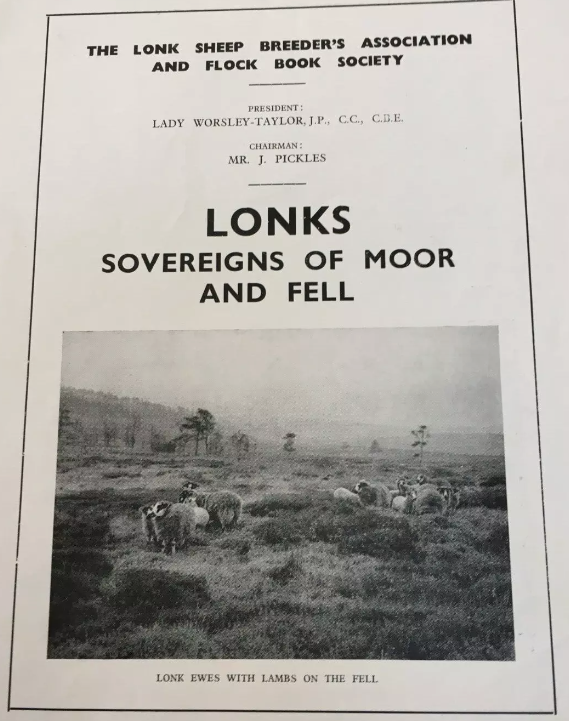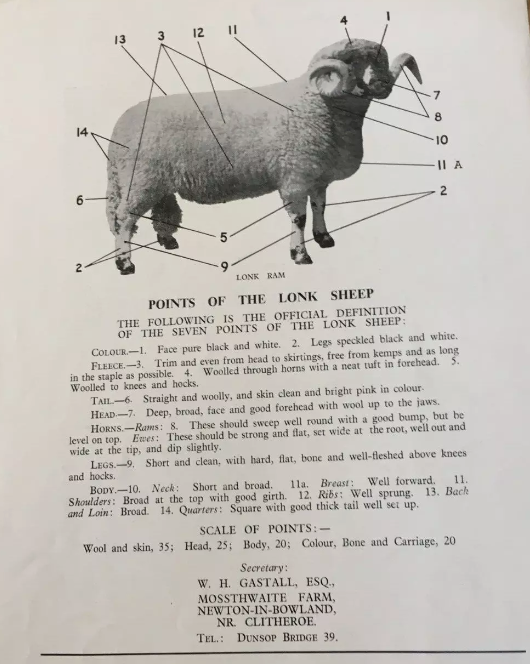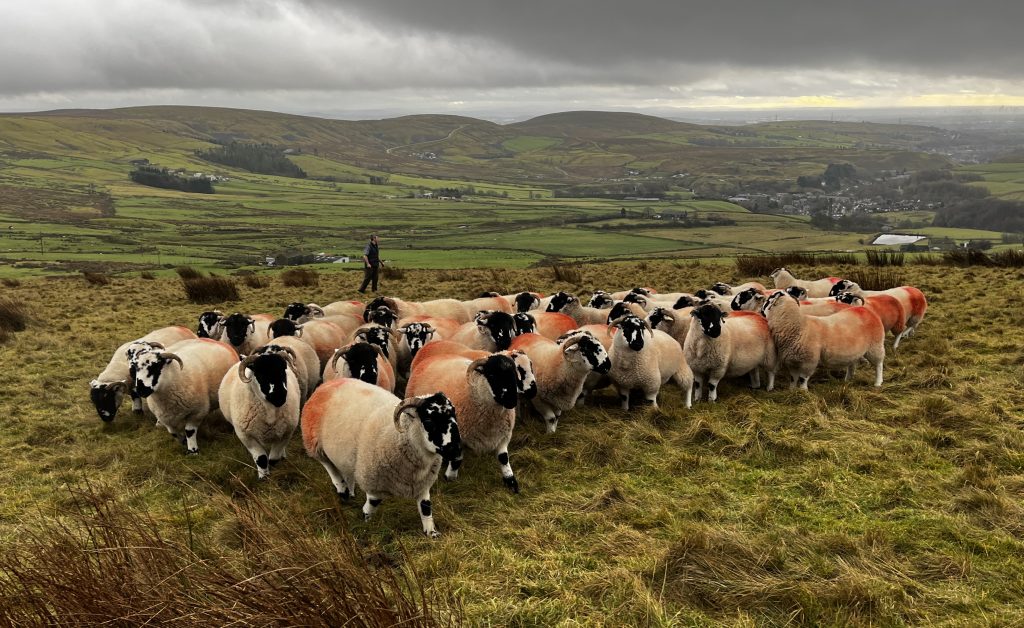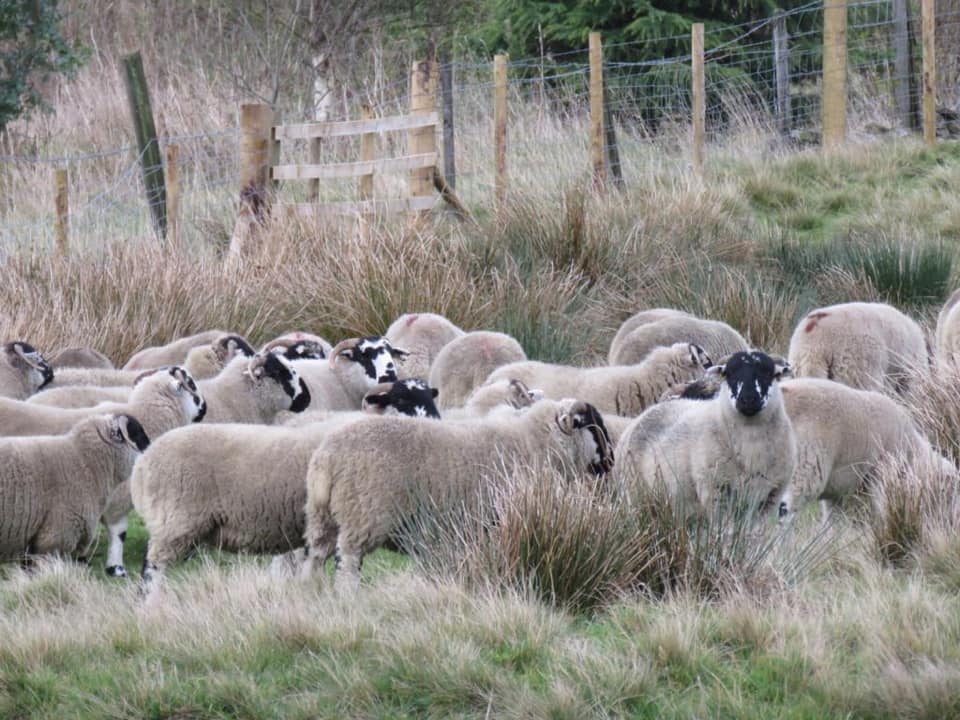The Lonk Sheep
The Lonk sheep is one of Britain’s oldest and hardiest hill breeds, with a heritage stretching back over 270 years. Native to the rugged Pennine hills of northern England, this breed has evolved to thrive in some of the country’s most challenging farming environments.
Some say, its name derives from the Lancashire word “Lonk,” meaning “long and lanky,” a nod to its distinctive appearance.
The Lonk Sheep has been improved and pure bred by farmers in the Lancashire and Yorkshire Pennines since the inception of the flock book from the breed in 1905.
Its main qualities of hardiness, size, health and freedom from disease, colour, depth and uniformity of coat and its longevity have been rigorously preserved.
For a farmer who has pride in their stock they are very good looking free ranging sheep of the mountain class.
A Breed Built for Tough Conditions
Lonks are renowned for their resilience and ability to survive in harsh conditions.
Being strong boned and well wooled it is an agile sheep well able to withstand most exacting climates.
Their thick, tight wool coat not only keeps them warm but also produces one of the highest-quality fleeces among horned hill breeds, achieving the top classification from the British Wool Board.
With improved breeding, flock ewes yield an average of 2.7–3kg of wool, hoggs 4–4.5kg, and rams an impressive 5.5kg per clip.
Prolific and Productive
Lonk ewes are exceptional mothers, known for their abundance of milk, ensuring twins grow evenly and thrive.
They produce lean meat carcasses with weights of 40–50kg and wethers that consistently achieve the sought-after R3L grading.
This makes Lonks not only hardy survivors but also highly productive contributors to the modern sheep industry.
A Breed with Character
More than just practical, Lonks are known for their unique personalities and incredible determination.
Their ability to utilise poor grazing land effectively and adapt to lowland farms later in life demonstrates their versatility and longevity.
A Rare Breed Worth Protecting
Recognized as a rare breed, the Lonk sheep represents a valuable piece of Britain’s agricultural heritage.
Keeping Lonks helps preserve their unique genetic traits, and farmers may qualify for the government’s Rare Breed Supplement to support their conservation efforts.
An Excellent Choice for Crossing
Lonk sheep are highly regarded for crossing, either to produce robust lowland ewes or to improve traits like conformation, carriage, and coat in other hill breeds.
Their adaptability and strong maternal instincts make them a favoured choice for innovative breeding programs.
With its confirmation the Lonk ewe crossed with downland breeds regularly produces quick growing twins which can mature to killing weights in 12 weeks.
Lonk ewes have gained an enviable reputation for producing the right tight coated lamb with the extra length and the right fat-lean combination which is sought after by today’s selective markets.
The Lonk wether will grow to weights of 40-46Kg and are sought after by today’s selective market, it has been used by one of the leading chefs in the country and won the Great British menu for the Lonk Hotpot.
In Summary?
With a rich history, remarkable resilience, and undeniable value in modern farming, the Lonk sheep continues to be a breed of both tradition and innovation.

The Key Points to a Lonk Sheep



FAQ’S
What are Lonk Sheep known for?
Lonk Sheep are renowned for their hardiness and ability to thrive in harsh upland environments. They are valued for their fine-quality fleece and excellent meat production.
Where do Lonk Sheep originate from?
Lonk Sheep are native to the hills and moors of Lancashire and the surrounding regions in Northern England.
What are the physical characteristics of Lonk Sheep?
Lonk Sheep are medium to large in size, with a distinctive black and white face. They have a long body with good depth, strong bone, and a dense wool coat suited for cold climates.
What makes Lonk Sheep a good choice for farmers?
Lonk Sheep are low-maintenance, resilient, and well-adapted to grazing on rough terrains. They have excellent mothering instincts, which contributes to high lamb survival rates.
Why are Lonk Sheep the perfect choice for the Rare Breed Supplement?
Lonk Sheep are an excellent candidate for the Rare Breed Supplement due to their status as a heritage breed with significant cultural and agricultural value. As a traditional breed native to Northern England, they are critical to preserving biodiversity in upland farming systems. Their hardy nature, adaptability to challenging terrains, and high-quality wool and meat make them an essential part of sustainable farming practices. Supporting Lonk Sheep through the Rare Breed Supplement helps ensure their conservation, promotes genetic diversity, and sustains the livelihoods of farmers maintaining these iconic flocks.

